Explore Conservation Ethics
In our recent panel episode of Tech Tutors, How do I use conservation tech ethically?, our presenters explored this important subject as they answered the following questions:
- Doug Clark: How do I use conservation tech ethically?
- Laure Joanny: How do I build on existing tools and procedures to use conservation tech ethically?
- Trishant Simlai: How does conservation tech cause harm?
- Koustubh Sharma: How do I manage ethical issues in the field?
Click each presenter's name to view the recording from their individual lecture portion of the panel.
Louis Cohen also created a conservation tech ethics beginner's guide for Tech Tutors participants, available for download here.
And in addition to the many engaging resources shared by participants during this episode, our presenters also provided several papers and other resources to help you explore the many aspects of conservation technology ethics:
- Research Paper (Doug Clark, Chris Sandbrook, Trishant Simlai): Principles for the socially responsible use of conservation monitoring technology and data
- Research Paper (Koustubh Sharma): Conservation and people: Towards an ethical code of conduct for the use of camera traps in wildlife research
- Keynote Presentation (Trishant Simlai): Conservation surveillance as a means for state repression? Psychological terror and the spectacles of fear through the use of drones in India
- The First Nations Principles of OCAP
- Doug Clark: Engaging Northern expertise strengthens ecological science
- Research Paper (Chris Sandbrook): The social implications of using drones for biodiversity conservation
If you're interested in discussing the ethics of conservation technology, you can join the WILDLABS forum dedicated to ethics, and connect with these panelists in this episode's Tech Tutors thread!
- @vfhawkinson
- | she/her
University of Washington
PhD student assessing multi-scalar livestock-wildlife interactions in the American West
- 0 Resources
- 1 Discussions
- 8 Groups
- @dmwilliams
- | she/her
Behavioral ecologist and community science coordinator
- 0 Resources
- 0 Discussions
- 8 Groups
- @TaliaSpeaker
- | She/her
WILDLABS & World Wide Fund for Nature/ World Wildlife Fund (WWF)
I'm the WILDLABS Research Specialist at WWF-US

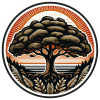

- 23 Resources
- 62 Discussions
- 25 Groups
WILDLABS & Wildlife Conservation Society (WCS)
I'm the Bioacoustics Research Analyst at WILDLABS. I'm a marine biologist with particular interest in the acoustics behavior of cetaceans. I'm also a backend web developer, hoping to use technology to improve wildlife conservation efforts.





- 27 Resources
- 34 Discussions
- 34 Groups
Sustainability Manager for CERES Tag LTD. An animal health company; animal monitoring, conservation, & anti-poaching/ rural crime. Wildlife, livestock, equine & companion. #CeresTrace #CeresWild #CeresRanch





- 2 Resources
- 20 Discussions
- 24 Groups
Cinematographer, Conservationist, Remote Sensing
- 0 Resources
- 4 Discussions
- 3 Groups
- @hpishdast2023
- | she/her
- 0 Resources
- 0 Discussions
- 4 Groups
- @Britneecheney
- | her/she
My name is Britnee Cheney. I am a keeper and trainer for three North American River Otters at an aquarium in Utah. I have recently started a conservation program for this species in the wild and am looking for resources and mentors to help me with my camera trapping.


- 0 Resources
- 13 Discussions
- 8 Groups
- @StephODonnell
- | She / Her



- 193 Resources
- 676 Discussions
- 32 Groups
2023 Bachelor Degree Graduate from the College of African Wildlife Management, Mweka.

- 0 Resources
- 3 Discussions
- 14 Groups
- @Rob_Appleby
- | He/him
Wild Spy
Whilst I love everything about WILDLABS and the conservation tech community I am mostly here for the badges!!




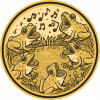
- 1 Resources
- 315 Discussions
- 11 Groups
Conservationist with a focus restoration ecology/rewilding and botany, a keen birder and currently working in the Seychelles
- 0 Resources
- 1 Discussions
- 5 Groups
Come and do the first research into responsible AI for biodiversity monitoring, developing ways to ensure these AIs are safe, unbiased and accountable.
11 June 2024
WildLabs will soon launch a 'Funding and Finance' group. What would be your wish list for such a group? Would you be interested in co-managing or otherwise helping out?
5 June 2024
Listen in on our interview with human-predator conflict expert, Gabi Fleury and gain a deeper understanding of the importance of holistic, ethical and community-led approaches to developing tech solutions for...
8 December 2023
Made available by the Digital Disruption and the Future of Conservation project team at Unearthodox, the toolkit provides conservation practitioners with a comprehensive introduction to Web 3.0 and AI concepts and their...
22 September 2023
The program’s third cohort will provide $300,000 to artificial intelligence projects making a positive impact in ecosystems and human communities.
15 September 2023
In this article, Sol Milne discusses his experiences with sustainability, both in terms of environmental impact and project longevity, and considers how uncoupling conservation work from colonial ideas can help us build...
9 August 2023
Published in Frontiers in Veterinary Science
1 March 2023
Article
Meet the women and men supporting gender equality in conservation #tech. Here is a panel discussion the Women in Conservation Tech (WiCT) led in November 2022, during the EarthRanger User Conference (ERUC). Opening up...
30 January 2023
This article examines the politics of emerging partnerships among big-tech corporations, big international non-governmental organisations (BINGOs) and bilaterals that promote the uptake and implementation of ‘smart...
13 January 2023
The series will focus on how AI is being used to support conservation efforts. The series will discuss the past, present and future of how these technologies advance sustainability, with a focus on the future, and an...
11 October 2022
Article
Ceres Tag sends just in time alerts and GPS location to have the power to track and trace.
22 July 2022
"A drone emitting orca sounds will be used in attempt to guide the animal, whose health is fast deteriorating"
1 June 2022
July 2025
September 2024
event
| Description | Activity | Replies | Groups | Updated |
|---|---|---|---|---|
| Thanks for kicking off this thread Paola!You might be interested in this paper by Chris Sandbrook et al |
|
Ethics of Conservation Tech | 10 months 2 weeks ago | |
| Fantastic!! |
|
Acoustics, AI for Conservation, Animal Movement, Build Your Own Data Logger Community, Community Base, Early Career, Ethics of Conservation Tech, Marine Conservation, Open Source Solutions | 11 months 2 weeks ago | |
| Hi Luciano,Thank you for joining in in the discussion!I really love your perspectives on this. It is exciting to learn that I am not all alone in this. You know, at one point you... |
|
Ethics of Conservation Tech | 1 year 1 month ago | |
| Hi everyone! My name is Leah Govia and I am a PhD candidate at the University of Guelph, Canada. My research explores what people... |
|
Ethics of Conservation Tech, Conservation Tech Training and Education, AI for Conservation | 1 year 3 months ago | |
| Fire detection is a sort of broad idea. Usually people detect the products of fire, and most often this is smoke.Many home fire detectors in the US use a radioactive source... |
|
Community Base, Conservation Tech Training and Education, Data management and processing tools, Ethics of Conservation Tech, Human-Wildlife Conflict, Open Source Solutions, Protected Area Management Tools, Sensors, Wildlife Crime | 1 year 4 months ago | |
| Hi folks! Happy 2024 and thanks in advance for your patience in case I over-used tags. If you’re using any form of natural language... |
|
AI for Conservation, Citizen Science, Climate Change, Conservation Tech Training and Education, Data management and processing tools, Early Career, East Africa Community, Emerging Tech, Ending Wildlife Trafficking Online, Ethics of Conservation Tech, Human-Wildlife Conflict, Open Source Solutions, Software Development, Wildlife Crime, Women in Conservation Tech Programme (WiCT) | 1 year 4 months ago | |
| Thank you Stefan! Will follow up with your email shortly. |
|
Acoustics, Emerging Tech, Ethics of Conservation Tech | 1 year 5 months ago | |
| Hi Emma, In your new project, if you have interest in a direct to satellite platform perspective, you can contact me on info@cerestag.com Would be interested to see your outcomes... |
|
Emerging Tech, Ethics of Conservation Tech | 1 year 7 months ago | |
| Hello all! Bluspark is a plateform that allows natural area managers such as natural parks or reserves to optimize their day to day... |
|
Citizen Science, Community Base, Connectivity, Conservation Tech Training and Education, Ethics of Conservation Tech, Protected Area Management Tools, Software Development | 2 years ago | |
| I just came across this interesting paper in which seismic monotoring of animals like elephants was mentioned. This is the study refered to:Cheers,Lars |
|
AI for Conservation, Camera Traps, Emerging Tech, Ethics of Conservation Tech, Human-Wildlife Conflict, Geospatial, Sensors | 2 years 5 months ago | |
| Hi all, one of the 8 MozFest 2023 spaces is 'Tech & Biodiversity', and the organisers seek input for an event on the intersection of... |
|
AI for Conservation, Ethics of Conservation Tech, Open Source Solutions | 2 years 6 months ago | |
| Fwiw, GBIF published guidance on this topic late last year: Chapman AD (2020) Current Best Practices for Generalizing Sensitive Species Occurrence Data. Copenhagen: GBIF... |
+1
|
Ethics of Conservation Tech | 3 years 8 months ago |
Prospective NSF INTERN
11 February 2025 10:00am
Technology in Wildlife Welfare Workshop (in-person, UK)
6 May 2025 7:46pm
Beyond the Tech Hype / Más Allá del Hype Tecnológico
21 April 2025 3:59pm
Dual-/Multi-Use Technology Strategies
1 April 2025 11:46pm
15 April 2025 6:17pm
That is a great point and the current international trade climate has been making supply chain even more difficult. This also deeply affects US companies given much of the US goods manufacturing and assembly happening in China. Over the last few years, I have been seeing US hardware companies (e.g. drone platform and component OEMs) sourcing their goods from India, Turkey, Canada, and more recently in African and South American nations. Because of the last 3-to-5 years of increasingly restrictive and costly international hardware trade, there has been a emergence of specialized component manufacturers internationally. For European companies interested in providing hardware services to the US, I would suggest diversifying the supply chain beyond China. Given the current climate and trends, that added supply chain resilience may be a good idea, regardless of work with the US.
15 April 2025 7:36pm
This is more than the supply chain though. The point was the company itself cannot use any tech for anything from the 5x companies. So in my case my ISP is incompatible. Essentially I see the only companies making that kind of sacrifice are ones that want to devote themselves to defence only.
Of course. That’s US defense as a customer. European defence is fully on the table.
It’s just sad that it’s not restricted to defence. US government wildlife organisations cannot buy European tech unless that European company was pure in their eyes.
15 April 2025 8:37pm
True, the US ecosystem is a challenging space right now, for basically all sectors.
We should not let the US chaos prevent us from engaging with opportunities in other nations' multi-use markets. A company's ability and journey to tap into other markets is very unique to them (product, team, finances, infrastructure, agility), and some simply cannot adapt. There is no one size fits all (or even most) solution when it comes to multi-use strategies. It is important that we are systematic about evaluating the cost to adapt our product-service to a different market, and the value of new opportunities in that new market, without losing track of underlying conservation and social good needs.
Papers about gender and disability in conservation tech
21 March 2025 4:56pm
11 April 2025 10:26pm
Wow, thanks for sharing @Nycticebus_scientia. Would love to read further papers on these topics if folks have them!
United Nations Open Source Principles
13 March 2025 4:13pm
25 March 2025 11:54am
All sound, would be nice if there were only 5, though!
Drone Photogrammetry & GIS Introduction (Foundation) Course
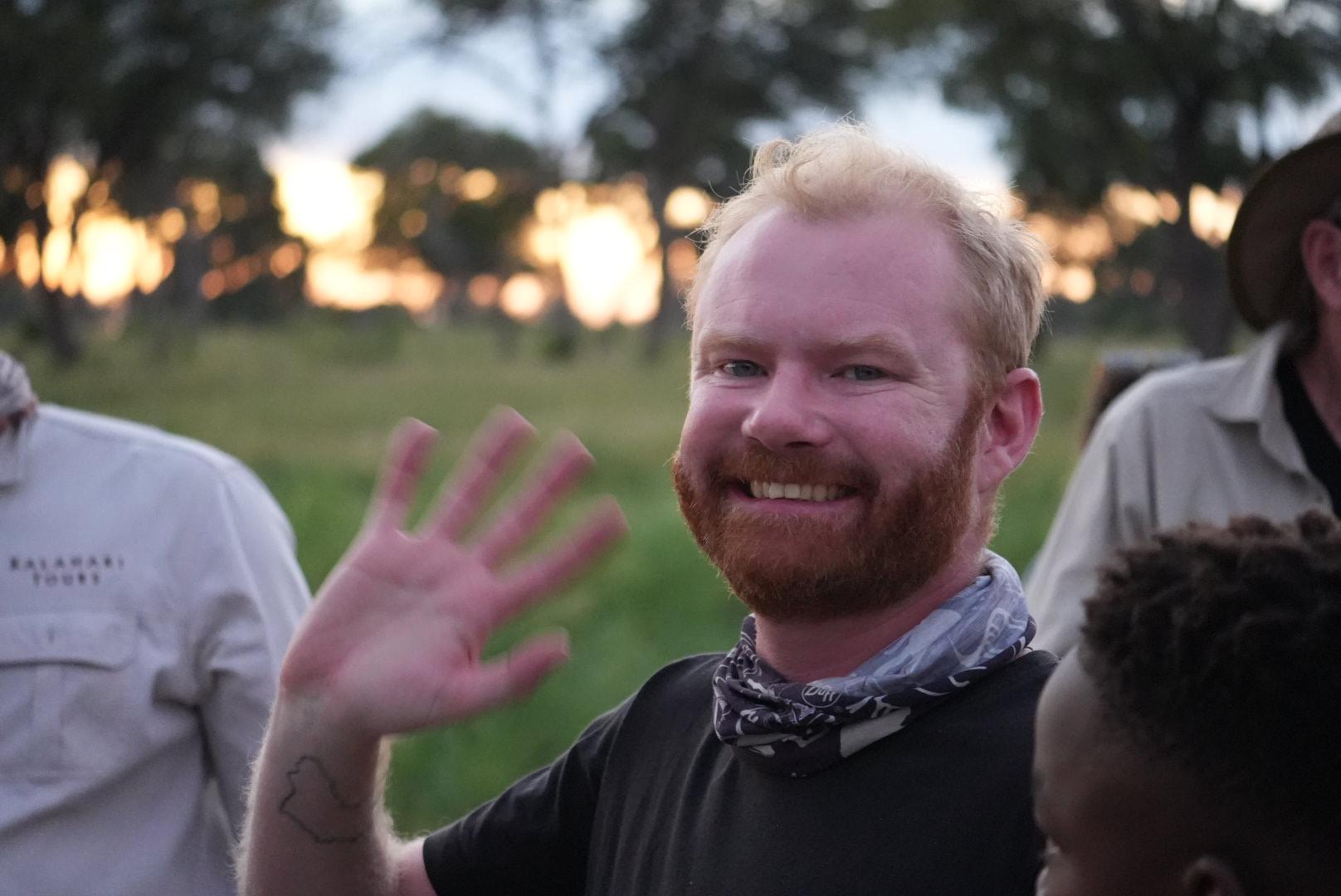 Sean Hill
and 1 more
Sean Hill
and 1 more
18 March 2025 12:47pm
What are open source solutions anyway?
1 November 2024 2:21pm
11 December 2024 12:34pm
Open source technologies are a game-changer for biodiversity conservation. They give us the freedom to use, study, modify, and share vital tools and knowledge that help advance research in meaningful ways. For conservationists, this means we can adapt technologies to meet local needs, improve existing tools, and make new innovations available to everyone—creating a more collaborative and sustainable future for our planet.
It’s exciting to see the impact of open source in conservation already, with tools like Mothbox, Fieldkit, and OpenCTD helping to drive progress. I'm curious—how do the formal definitions of open source resonate with you? How do they shape the way we approach conservation?
Also, if you're interested in how open source AI can support conservation efforts, check out this article: Open Source AI Agents: How to Use Them and Best Examples.
Can’t wait to hear your thoughts! Let's keep the conversation going.
11 December 2024 9:04pm
Sorry to be a stickler on syntax when there is a richer discussion about community here - but I believe a true "open source" project is a functionally complete reference design that anyone can build upon with no strings attached. If the community isn’t provided with enough information to fully build and iterate on the design independently, then the project doesn’t truly meet the spirit of open source.
As a developer and engineer, I’ve observed that sometimes projects crowdsource free engineering work under the guise of being "open source." While this can have benefits, it can feel like asking for a free lunch from clients and customers.
Advanced features—like enterprise-level data management or tools for large-scale deployments—can reasonably remain proprietary to sustain the project financially. Transparency is critical here. If the foundational components aren’t fully open, it would be more accurate to describe the project as "community-driven" or "partially open." And as an engineer/developer I wouldn't be angry when I went to explore the project marked "open source" only to find that I have been lied to.
Just my two cents, and I really appreciate the thoughtful discussion here. The open source community has been a massive influence on me. Everything I do at work would not be possible without it. In many ways, "open source" or "public domain" projects represents the true know-how of our society.
4 March 2025 3:27pm
Thanks again for the interesting discussion everyone!
Just a note that while I touched on it in my opening post above, there were still questions in this thread about what open source tech means. I tried to address that in my new thread here:
Definitions for open source software & hardware and why they're important
27 February 2025 10:58am
28 February 2025 5:26pm
Thanks for this excellent and thought-provoking post, Pen. I agree this is a binary yes/no issue, but there is a spectrum. There could also be philosophical nuances. For example, does excluding honey from a vegan diet meet the ethical criteria of veganism? It's an animal product, so yes, but beekeeping generally doesn't have the same exploitative potential as cow, sheep, or pig husbandry, right? However, looking strictly at the definition, honey is out if you want to be vegan.
Back to software! Isn’t the main issue that companies falsely claim to offer open source hardware/software? To avoid this, do you then have to create an accreditation system? Who polices it? Is it fair? Would users care that their software has the accredited open source stamp of approval? Ultimately, we need definitions to define boundaries and speak a common language.
4 March 2025 3:21pm
Thanks @VAR1 great insights! Funny you mentioned the honey thing, @hikinghack said the same in response on the GOSH forum.
I think the point I'm trying to make with the vegan comparison is that while it might not be 100%, it is close enough for us to have productive conversations about it without running in circles because we can't even agree on what we are talking about.
As for open source tech, there actually is accreditation for open source hardware (at least of a sort). The Open Source Hardware Association has a fairly mature certificate program:
OSHWA Certification
Certification provides an easy and straightforward way for producers to indicate that their products meet a well-defined standard for open-source compliance.
I am genuinely undecided whether such a formal accreditation system is required for open source software. My undecided-ness comes back to the food/agriculture analogy, where a similar issue exists for organic certification. Being certified organic could possibly, in some cases, be beneficial. However, certification can also be very onerous for small organic farmers who can't afford to get it.
But before we even think about accreditation, I echo your last sentence that we need definitions to define boundaries. These definitions, as I argue in my original post above, is not only about principles and philosophy, they are also a practical necessity for enabling effective communication!
Paper: Technology's social and structural effects in environmental organizations
10 February 2025 6:00am
Ethics in Conservation Tech - Beyond Morality
26 November 2024 1:21pm
26 November 2024 3:05pm
I completely agree that ethics in conservation technology must address the dual challenge of protecting both the people placing the equipment and those whose lives might inadvertently be surveilled. Encryption is indeed a critical tool to safeguard data and mitigate risks, especially in sensitive deployments like anti-poaching efforts.
You’re absolutely right to point out the broader challenge of corruption or misuse by authorities who control the platforms. This raises the question of governance and oversight—how do we design not only the technology but also the systems of accountability around its use? For example:
• Could we develop decentralized systems where no single authority has full control over sensitive data?
• Should conservation tech projects include mandatory ethical reviews, akin to institutional review boards in academic research, to prevent misuse from the outset?
Your example of anti-poaching tech highlights how ethics isn’t just about “what” we do but also “how” we do it. Ensuring anonymity in the data trail or creating “dummy” deployment footprints could be practical steps to protect the individuals involved.
Would love to hear your thoughts on how we can move toward implementing these safeguards. Are there successful case studies or projects you’ve seen where encryption and oversight have been effectively integrated?
Looking forward to continuing this conversation!
26 November 2024 3:23pm
Well I do have an upcoming product release that uses both secure boot and encryption for a camera trap solution as well as for an ARU solution. So for my products, this part is addressed. If you captured such a device you could not read any data on it and there would be no digital clues leaked as to the owners. So you can see now more easily understand my eagerness to highlight this particular part of the solution 😊
But no, there are no case studies involving it for my products are they are brand new.
The corruption part of it is much harder to deal with. However, in the case of camera traps for example, one could in principle, if using AI detectors, don't take any pictures if people are in view. That particular piece of functionality would be available with my product. But it does come at a price, because matching people also can provide a means to protect the equipment.
Perhaps one could start out in good faith. But if it's abused, then tighten it up. The social problem is way harder. but to determine that it was abused might in fact require even more surveillance initiallly. Unless you waited for feedback from the people on the ground to report. However, that's likely to easily fail as they would have to know how to provide the feedback in the first place. It might also be difficult for deployment where a lot of people are naturally.
Audio recorders could also do voice detection and mute or delete sections that contain voice from their recordings.
I have a feeling you were more interested in persuing the social side of it, no ? That's great of course, cause that's where the harder challenge is.
27 November 2024 7:10am
Thanks for sharing this—it’s exciting to see how your product is tackling these challenges head-on with encryption and AI solutions. The idea of AI-driven detection to avoid capturing people while still protecting equipment is such a smart balance.
You’re absolutely right that the social side is the harder challenge. Maybe co-designing these solutions with local communities could help build trust and make feedback systems more practical? It’s tricky, but I’d love to hear how you see these ideas evolving as your product rolls out!
Looking forward to more on this!
Exploring the Potential of Synthetic Aperture Radar for Plant Conservation
3 August 2024 9:14pm
Looking for interview participants for research on AI Conservation & the CBD
23 July 2024 1:45pm
Move BON Development: Follow up discussion
19 June 2024 12:02pm
11 July 2024 10:14pm
You can catch up on the recording at that same link to the June Variety Hour! Lacey's fabulous talk starts around the 9:40 mark :)
12 July 2024 5:38am
Hi Talia!
I feel like the topic is so broad that it might help to put some constraints around things, see what works, and then broaden those out. I have a lot of ideas regarding the data monitoring and collection side based on the other sensor and observation networks we've set up in the past.
There may also be some potential scope to incorporate things like data collection and integrated monitoring to the Build Your Own Datalogger series where the system is updated to feed data into the observation network.
It'd probably take a bit of discussion and coordination. Let me know if interested. I'm fine to jump on a call or discuss via email too.
22 July 2024 9:24pm
@cmwainaina please take a look
Ethics in Conservation out there?
16 January 2024 9:12am
28 June 2024 7:26pm
Hi Paola,
This is a very interesting topic for me. The ethics of conservation seem difficult to untangle generally and I have not seen any reasonable formula to apply to gain clarity.
One question I find very interesting is how conservation efforts accommodate macro-environmental change. Accelerating climate change is already effecting habitability ranges.
In this context how does one define an invasive species? Traditionally, "invasive" has been defined in strictly geographical terms, but trying to keep a given species in some traditional geography while trying to keep some other species out seems somewhat too ridged for the dynamic future that is predicted. A traditional geography may no longer represent the best path forward for a species we'd like to keep in that geography. We are already seeing species migrate to high elevations, and out of reserves designed to protect them, to find cooler climates.
An ethical yard stick for conservation in an increasingly dynamic environment would be super helpful to direct efforts most effectively.
1 July 2024 11:49am
Not exactly sure what you are looking for specifically, but have you seen this one as an example? This is camera trap specific, but probably can be used to develop other scenario specific ethical CoCs.
6 July 2024 6:25pm
Thanks for kicking off this thread Paola!
You might be interested in this paper by Chris Sandbrook et al
Fully funded PhD in AI biodiversity monitoring
11 June 2024 1:07pm
VIHAR-2024 deadline extension, June 30th (Interspeech satellite event)
5 June 2024 10:30am
5 June 2024 3:05pm
Thanks for sharing this @nkundiushuti ! I think this post would be better suited as an event, that way it will show up on the WILDLABS event calendar page. Let me know if you have any questions on how to make an event post! You just click the +Post button in the top right corner, then click "event."
7 June 2024 8:29am
hi Alex!! I already posted the event, I just wanted to posted an update: the deadline was extended.
7 June 2024 1:45pm
Fantastic!!
New WILDLABS Funding & Finance group
5 June 2024 3:24pm
5 June 2024 4:14pm
6 June 2024 1:38am
6 June 2024 4:16am
Ethics in conservation
15 March 2024 8:53am
3 April 2024 4:38pm
Hi Sherril,
I can't believe this was posted almost a month ago. And more surprising that there are no comments about it yet.
That experience you had is one of the kind, because most people in conservation don't get to deal with ethics and moral issues in the front line that often. It's just because most people do desk work. Including managing directors of projects deployed in remote places. I can relate your experience to any field, I would say it's almost a human behavior classics. I understand it can be frustrating and also a lonely journey. Myself I had experience a lot of that in the last years. To a point that I was almost quitting doing my best for conservation, I was burnt out for seeing that the reality was a very different picture from the marketing about it. But I feel fortunate that I have been observing these realities in the sector first-hand for long time now. And because I did it all independently and self funded I can speak my mind about it. Which there are not many people with that freedom I found out.
You talk about illegal practices, in countries where corruption seems more "brutal", for governments and organizations the fact that something is illegal can be pretty relative concept. And methods follow short when that is the case. Many times I observed apparent combat of poaching activities, but after years of observation and doing my own research it was clear that the local governments were pretty aware of illegal activities and just not being honest enough to address them. Mainly because the donors are far away, way removed from the realities in the front line, so the remoteness of some places allows for a very flexible understanding of ethics in some cases.
Your experience is very valuable, I'm glad to hear that you got the permits at the end. And good luck with your research, remember to write, record and share your experiences. There is a lot of people in the same situation. Stay independent, stay free, share your knowledge.
Best, Luciano
nowforwildlife.org
5 April 2024 8:19am
Hi Luciano,
Thank you for joining in in the discussion!
I really love your perspectives on this. It is exciting to learn that I am not all alone in this. You know, at one point you think that some of these things are because you are not effectively doing your work, but then it is just how the system works. I am glad I figured it out. My main concern was how do I really get my data, remain safe from what seems to be an intricate, closely guarded practice and also protect my study participants and their communities from unintentional exposure to the securities. Through the process, I have gained lots of experience in navigating ethics in conservation, especially when the topic in question is illegal.
Exploring an ethical reflection tool for animal-focused tech (Survey)
13 February 2024 8:22pm
How are Outdoor Fire Detection Systems Adapted for Small Forest Areas, Considering the Predominance of Indoor Fire Detectors?
8 January 2024 4:27pm
22 January 2024 6:35pm
Fire detection is a sort of broad idea. Usually people detect the products of fire, and most often this is smoke.
Many home fire detectors in the US use a radioactive source and measure the absorption of the radiation by the air. More smoke means more absorption.
For outdoor fire detection, PM2.5 can be a very good smoke proxy, and outdoor PM2.5 sensing is pretty accessible.
This one is very popular in my area.
Classic - Air Quality Monitor | AQI PM2.5 Indoor/Outdoor Sensor – PurpleAir
The PurpleAir Classic air quality monitor is the original and popular PurpleAir sensor. It measures real-time PM2.5 concentrations for residential, commercial, or industrial use and can be installed indoors or outdoors. Built-in WiFi enables the air quality measurement device to transmit data to the real-time PurpleAir AQI Map, which is stored and made available to any smart device. The PA-II is available in two editions. The SD edition includes an onboard SD logger to record and store data without a WiFi connection. Please note: This sensor does not come with a power adaptor. Find a suitable OUTDOOR-rated adaptor here or use your own USB power source (any 5V, 1.2 to 2.4 amp adaptor will work).
Presentation opportunity: Text analysis for conservation (NACCB 2024)
8 January 2024 4:05pm
Call for Interview Subjects: Conservation Bioacoustics Methods
14 December 2023 8:47pm
15 December 2023 12:19pm
Happy to help Samuel, will send a message
15 December 2023 3:46pm
I'd love to!
16 December 2023 9:43am
Thank you Stefan! Will follow up with your email shortly.
Holistic, Ethical & Community-led Human-Wildlife Conflict Solutions with Gabriela Fleury
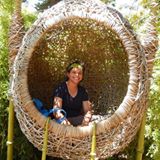 Gabriela Fleury
and 1 more
Gabriela Fleury
and 1 more
8 December 2023 1:38pm
AWMS Conference 2023
Practical strategies for conservationists in an increasingly digital world
9 October 2023 5:04pm
Leveraging new digital technologies for conservation impact
9 October 2023 4:39pm
Looking for advice around building a survey to develop guidance & prioritize tech development to meet ranger/First Nations' needs in Australia.
19 September 2023 3:08am
21 September 2023 4:07am
Hey Akiba, please get in contact with me about this on Espencer@wwf.org.au. We are looking on ways to collab in this area too. Especially in developing training resources!
21 September 2023 4:09am
Thanks Steph, would love to chat more about how you went about setting up the surveys themselves and whether you were able to reach any Indigenous/Ranger/First Nations groups across the Country. Please email me @ Espencer@wwf.org.au
25 September 2023 9:34pm
Hi Emma, In your new project, if you have interest in a direct to satellite platform perspective, you can contact me on info@cerestag.com Would be interested to see your outcomes and happy to have a chat if we can assist


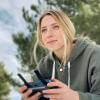





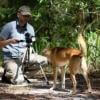





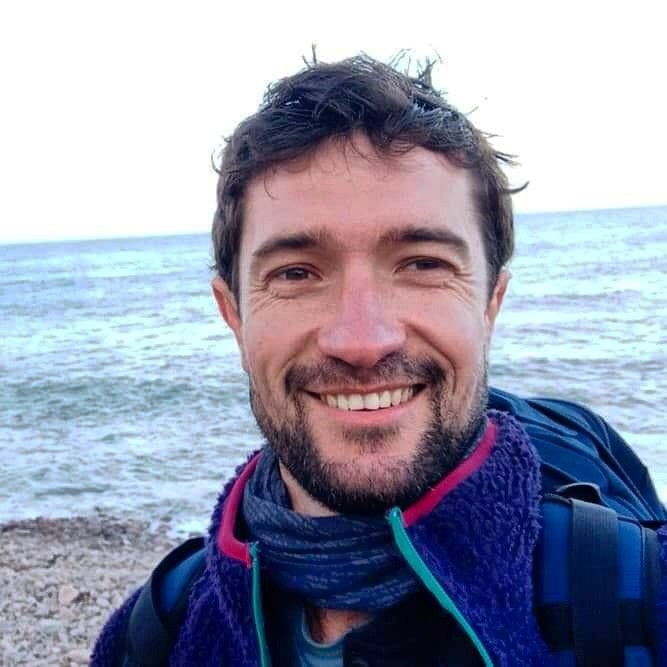






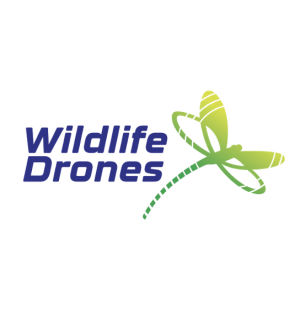
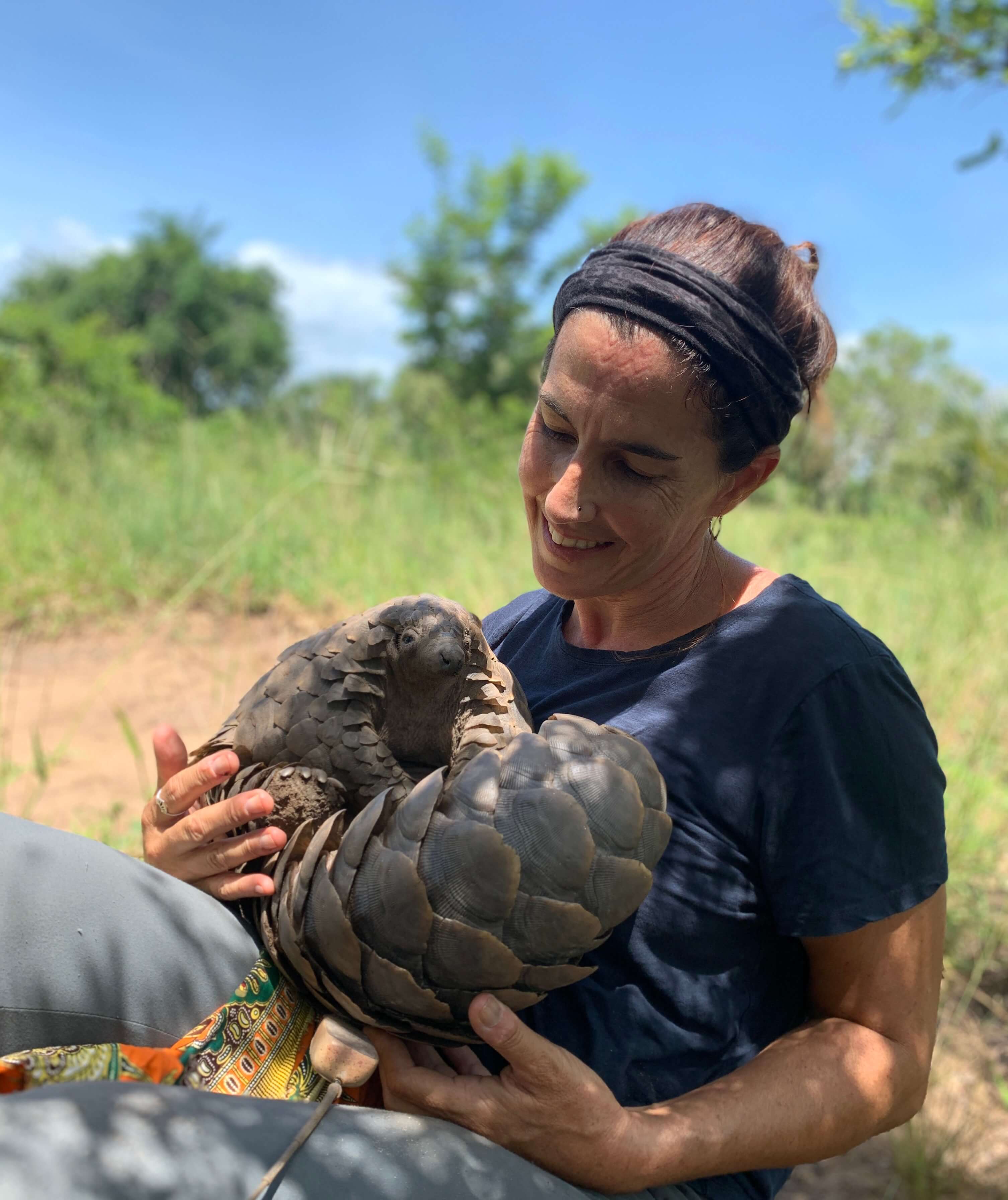





















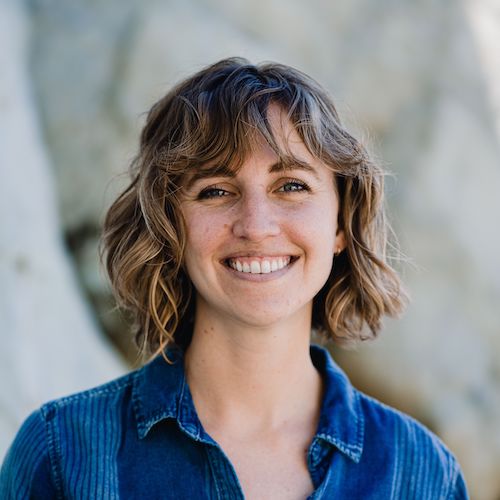











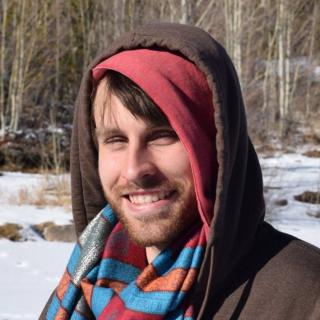




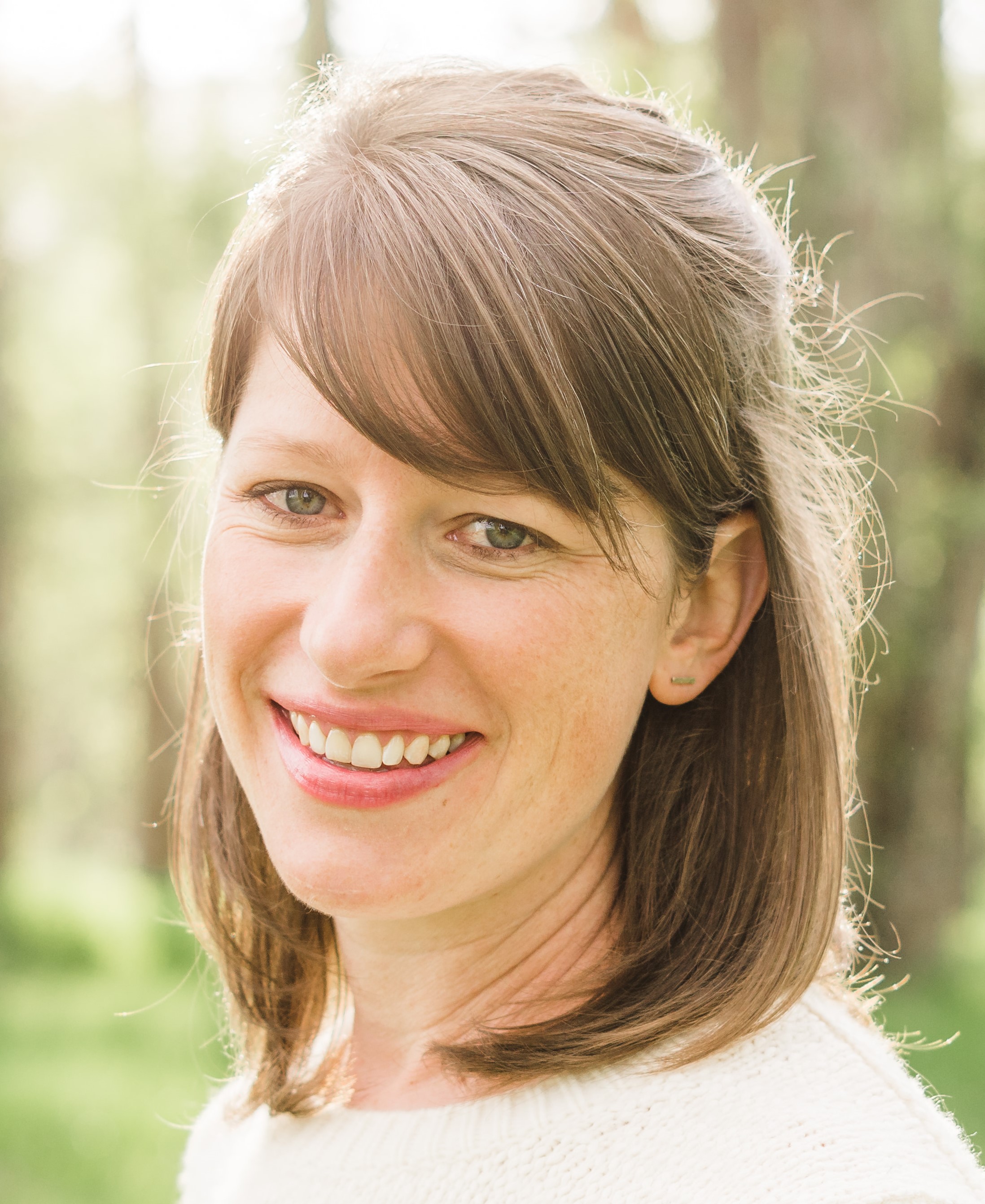

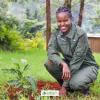






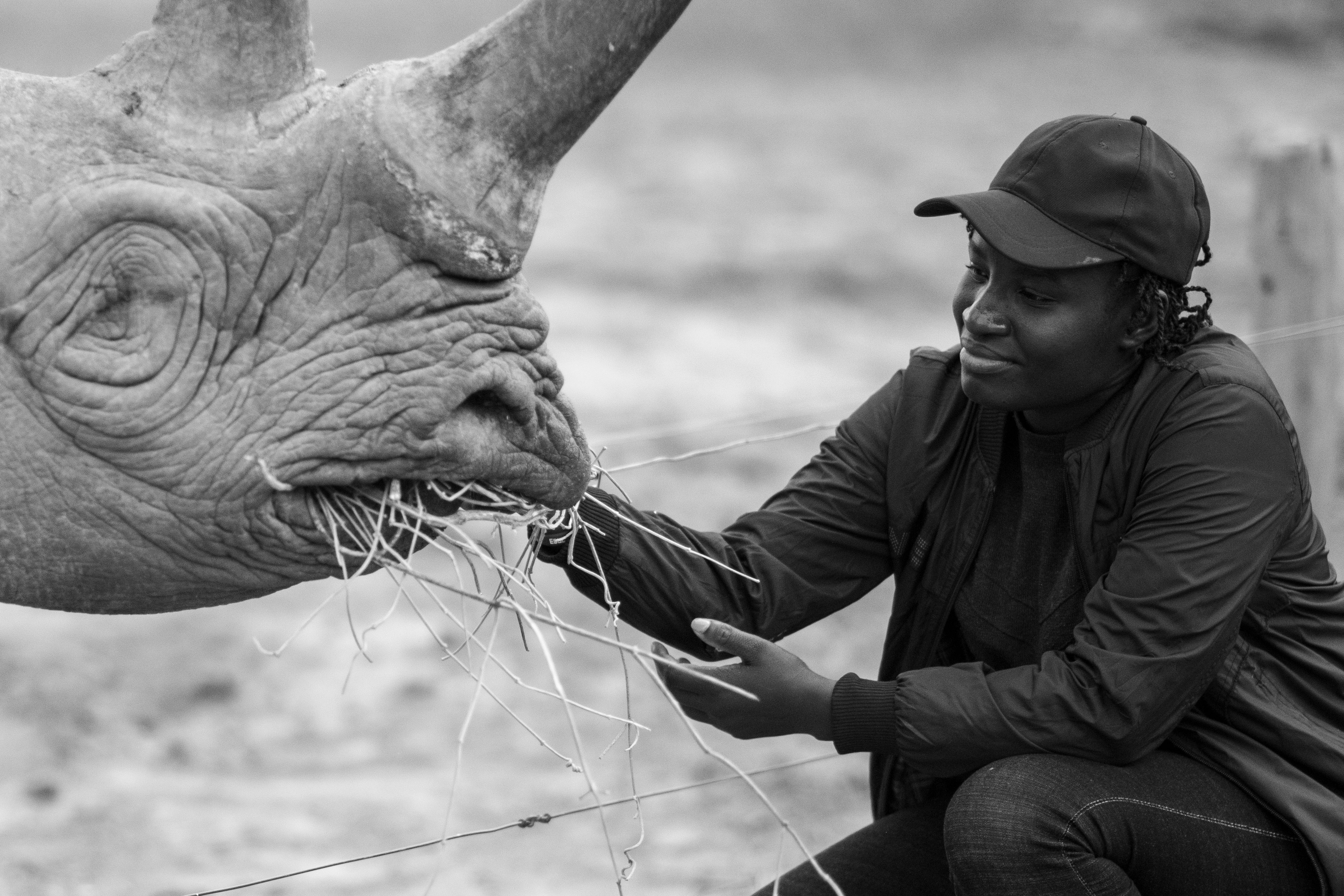



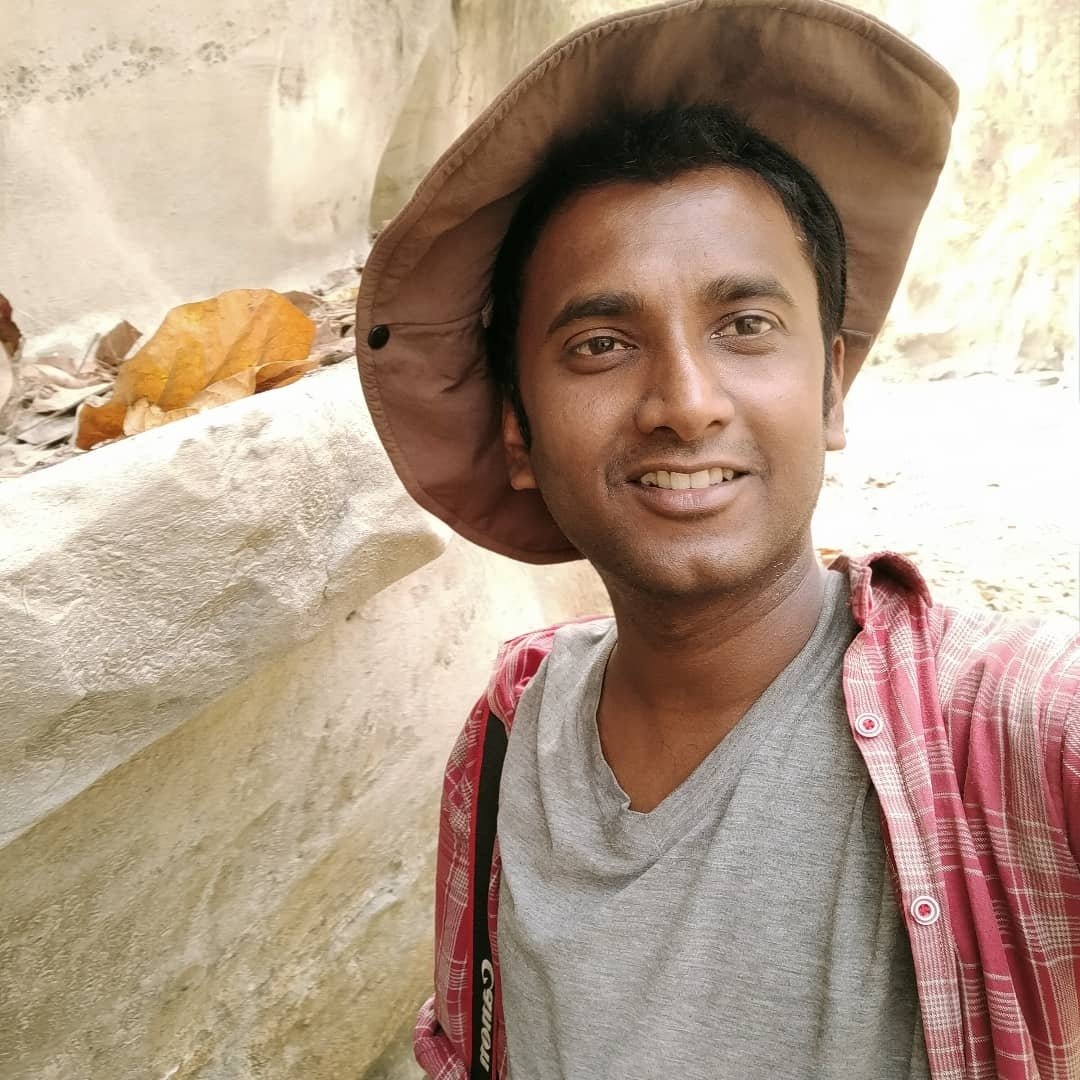



8 May 2025 8:51am
Hi Frank, your work sounds incredibly valuable and well-aligned with current needs in conservation tech. With your strong background in machine learning, acoustics, GIS, and outreach, you’d be an asset to many organizations. I’d recommend looking into groups like Rainforest Connection, Wildlife Acoustics, or the Conservation Tech Directory (by WILDLABS)—they often work on acoustic monitoring and might be open to in-person internships, especially with funding already in place. Best of luck finding the right match—your initiative is impressive!